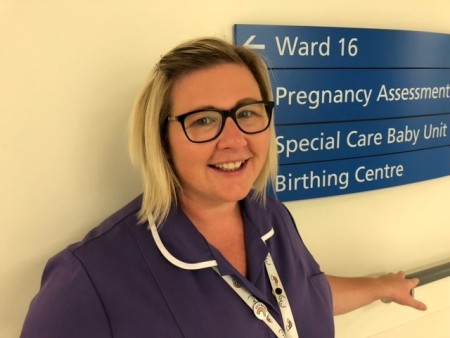Publish date: 3 May 2022
To celebrate International Day of the Midwife, infant feeding coordinator, Claire Stringer tells us about her role supporting women and babies

Hi, my name is Claire and I’m the infant feeding coordinator at Northumbria Healthcare. I am a specialist midwife supporting staff, patients and their families with all aspects of infant feeding. I have always had a keen passion for both antenatal education and infant feeding so this job is practically perfect for me as it allows me to support women to make informed decisions by sharing up to date evidenced based information.
I love being able to support both staff and patients through their breastfeeding journey’s. The most rewarding part of my job is when I see the change in people’s confidence with breastfeeding. The initial postnatal period can be quite challenging for some women as babies are transitioning from womb to world which is a huge change. Supporting women to gain confidence in their breastfeeding skills is an honour that I will never tire of and I am often in awe of how women adapt to life with a new-born baby.
Currently I am working on lots of projects, one being the UNICEF Baby Friendly Initiative (BFI) accreditation for the trust. This would help us to ensure that all families get support with feeding and developing close and loving relationships, helping babies get the best possible start in life.
I am really keen to continue to improve the services we offer to women and their babies and am working on setting up a specialist feeding clinic to support women, both antenatally and postnatally with any concerns or problems they may face with feeding. Breastfeeding trauma and grief are an aspect of a mother’s journey that often gets overlooked but this can have a huge psychological impact on women in subsequent pregnancies. I am really passionate about working on this and feel that as a trust we are making great strides to develop the services we provide to women and families, ensuring that they are given the best opportunities to help their babies grow and develop.
In my role I think it’s really important to normalise breastfeeding and empower women to feed their babies in a way that is comfortable for them.
